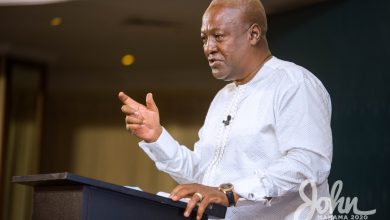
The Institute for Energy Security (IES) has issued a stark warning about an impending power crisis, often referred to as ‘dumsor,’ urging the government to take immediate action to avert nationwide blackouts.
This warning follows concerns raised by Member of Parliament for Yapei Kusawgu, John Abdulai Jinapor, who revealed that Ghana’s fuel reserves are dangerously low, with only five hours of supply remaining.
Speaking after the inauguration of President John Dramani Mahama on January 7, 2024, Jinapor criticized the previous administration for failing to secure sufficient fuel supplies, putting the new government in a difficult situation.
He also shared that President Mahama has directed the Chief of Staff to convene an urgent meeting with stakeholders in the power sector to address the looming crisis.
Nana Amoasi VII, the Executive Director of the IES, voiced these concerns in an interview on Citi FM. He attributed the crisis to inadequate planning and systemic inefficiencies, cautioning that without immediate reforms, the country could endure a prolonged power crisis.
He further explained that Ghana’s electricity production is heavily dependent on natural gas, and the lack of sufficient backup fuel reserves leaves the power sector vulnerable to disruptions.
“Almost all our power plants, except the hydro and solar ones, can run on liquid fuel. However, we don’t have adequate reserves to ensure reliability,” Nana Amoasi VII said.
He expressed frustration over the failure to make adequate fuel procurement arrangements during the transition period, describing it as a missed opportunity to avert the current crisis.
The IES is urging the current government to take immediate action to secure fuel supplies and stabilize the power sector, in order to prevent the nation from being plunged into darkness.
“We appeal to those in charge to start working immediately. Without swift action, the country remains dangerously exposed to power shortages,” Nana Amoasi VII concluded.




